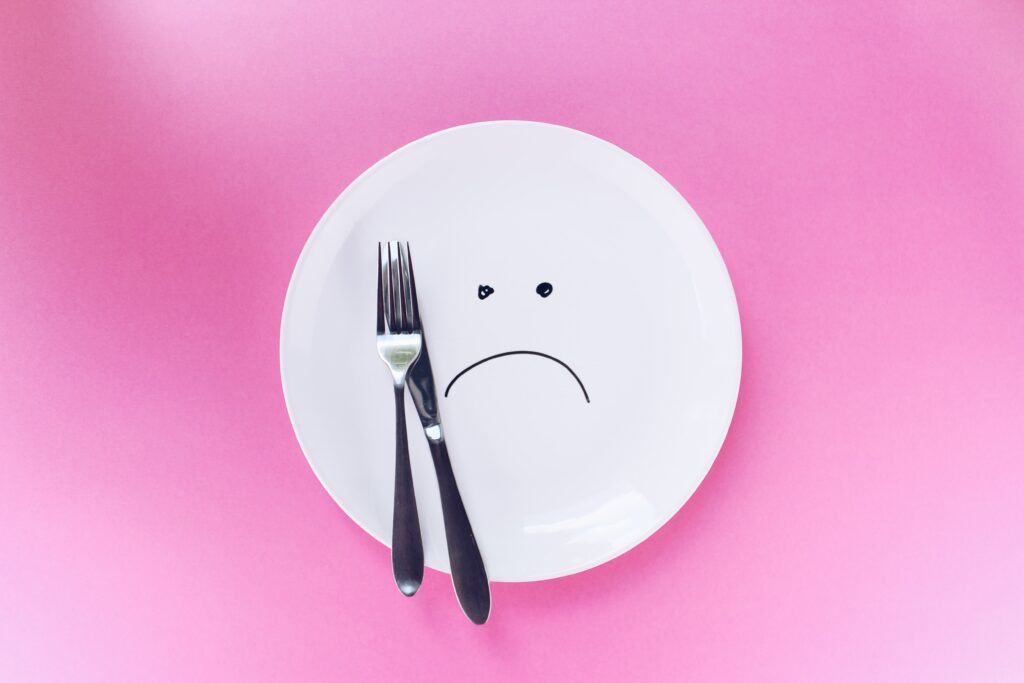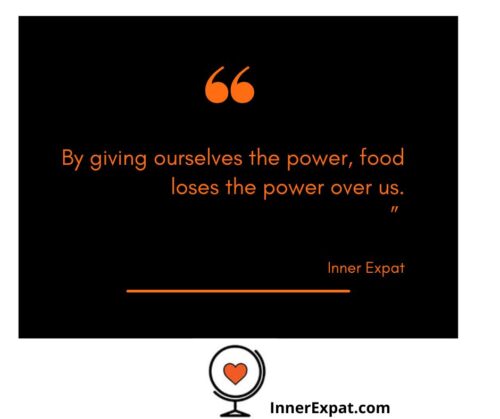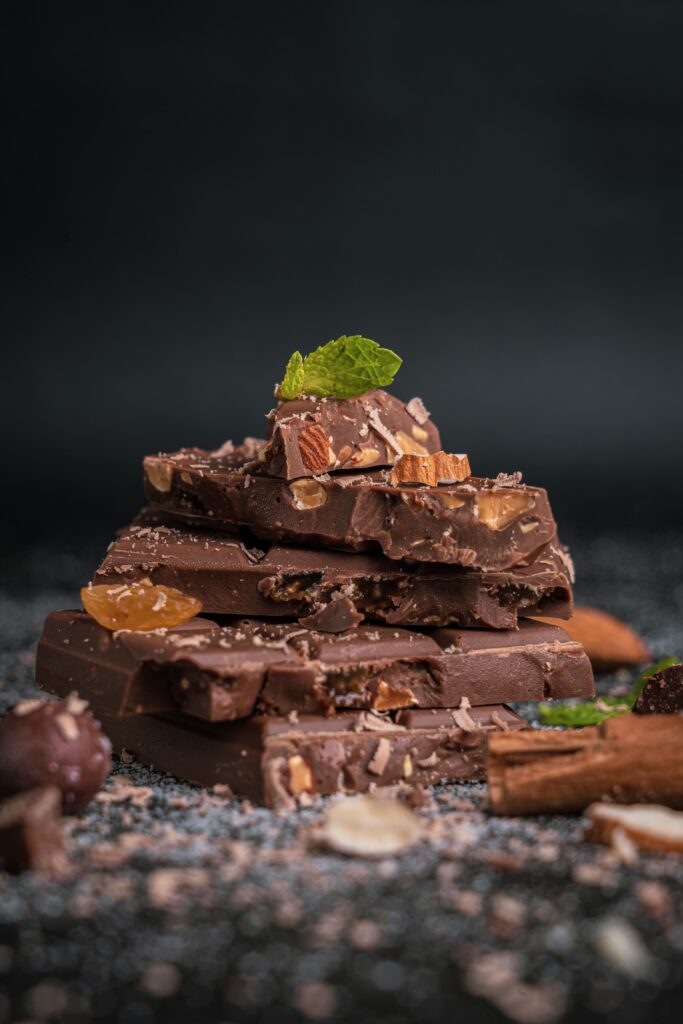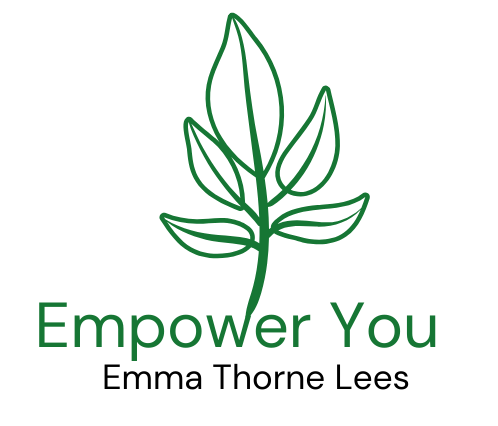Intuitive Eating – Make Peace with Food
So now we have covered Principle One – Reject Diet Mentality and Two – Honour your Hunger, we are onto Principle Three – Make Peace with food! Intuitive Eating is certainly proving to be an interesting and empowering journey for me so far, and I am keen to keep learning and exploring more.
As ever, I am using my trusty Intuitive Eating book and then deliving into it more with the reading and exercises in the workbook when I review each principle for several days or more, while trying to integrate the information.
So, what is ´Making Peace with Food´ all about?
Basically, it is inviting us to give ourselves unconditional permission to eat whatever and whenever we want. The reasoning behind this includes that if certain foods are off limits then these can lead to intense cravings for them which build up and can result in bingeing or general overeating and often guilt.
Deprivation and backlash
A natural reaction to being told something is not allowed is to want it more – in fact it is something that we say to ourselves from childhood upwards:
´We always want what we can´t have´.
This can be whether it is the toy, the food, the boy/girl of our dreams, the holiday, etc. The desire for that thing then becomes stronger and often even more difficult to manage.
The term for this is ´deprivation psychology’ – if you limit something it usually sets you up to crave it more and then we often ´give´ in to those cravings. Or as the book puts it:
The forbidden object is elevated to an overvalued level of specialness.
Intuitive Eating by Evelyn Tribole and Elyse Resch
Whereas if the object or food is freely allowed its value diminishes and the power over us does too.
This certainly makes sense to me at a logical level, but can I put it into practice? Whilst I generally allow myself to eat most things, I am aware of some restrictions I have, particularly around chocolate or sweet foods which can result in me bingeing on occasion. I don´t have the trust with myself that I can just have a bit of chocolate or whatever quantity I choose, I tend to start and then can´t stop myself easily which has resulted in me not trusting myself around some foods and it probably having more allure as a result if I am being really honest about it.

I am also interested to explore this idea with my kids around technology and lifting restrictions on that, which is something we have played a bit with in the past and I have previously read about too. I have also literally just discovered the infinite screen time movement in researching this post, which was hard to find beneath ALL the articles around restriction. I wonder whether allowing unlimited technology (obviously still with filters in place) would reduce its´prized value in the eyes of my teens. I certainl have seen this to be the case with some teens we know. In the past, we have had all technology days and after a few hours they have sometimes got bored and gone and done something else. Would this be the case if we did so on a daily basis? I am simulataneously nervous and curious to try. After all, they will actually leave home in a few years time to study/work independently and will have to manage it on their own then, isn´t it better to ´get it out of their system´now whilst we are still around to monitor and offer different perspectives and options too?
Anyway, I digress from Intuitive Eating, but I am keen to hear anyone´s views in the comments below about whether they have experimented with unlimited technology (or anything else for that matter!)
We have to be honest with ourselves as food can have power over us and lead to deprivation backlash and rebound eating accoding to Tribole and Resch. We can genuinely believe that when we eat a forbidden food that this time it is the last time and generally overeat it in order to really ´enjoy´ the experience and keep on doing this to ourselves despite knowing that it is a repeated pattern and behaviour.
The concept of ´Last Supper Eating´is also discussed as even the idea that a diet might be about to start or a food/s being restricted can lead to this behaviour where we have to rid the house of all ´bad´foods or ´enjoy´them for the last time. I certainly have done that when trying to get rid of all the sweet stuff in the house to reduce the availability or temptation!
They explain:
Each impending diet brings with it more fear of deprivation – with the knowledge that you won´t get ´enough´ or get what you want. Then comes more overeating, loss of self-control, and , finally, erosion of self esteem.
How could you possibly feel good about yourself if you truly believe that it´s possible to eliminate certain foods, only to find yourself bingeing and failing on yet another diet?
Intuitive Eating, Elyse Resch and Evelyn Tribole

Rebound Eating
Then there are other forms of Rebound (or over) eating which are more subtle:
- Food competition – often happens when sharing food or a plate with someone or in a large family where you experience the fear that you won´t get your share or there just won´t be enough. This can lead to a fear of deprivation and then regularly, or in that situation, eating more than our body feels comfortable with.
- Returning home syndrome – when we have been away from ´home´ for a while we can then binge or overeat foods that we didn´t have access to while away. I am certainly conscious of this one having lived away from the UK for 15 years and still every time I go back there are foods I feel I have to have, for example Scotch Eggs or scampi, which I very rarely ate when I lived there!
- Empty cupboard – if there is not much food around the home on a regular basis it can lead to a sense of deprivation, especially for kids who can then feel a compulsion to eat whatever they get access to when it is available.
- Depression-era eating (which has often been handed down to subsequent generations) ‘ the idea that you have to clean your plate as there may not be enough food or some foods won´t be available and we can´t waste anything (especially with starving people in the world as we were told as kids). This completely diminishes our ability to listen to our body cues but is so pervasive. I have tried to extinguish this idea from our family, including that you can´t have dessert unless you clean your plate as this also encourages the idea of eating more than you are comfortable with, plus it elevates the sweets to be more prized than the savoury course.
- One-off eating including eating at a very special restaurant or a friend´s house where the food is amazing and you are not sure you will ever get to eat it again. As a result you may eat more of it or more than you are comfortable with as you sense future restriction or deprivation.
It is a valid question to ask that if the deprivation backlash is so poweful for biological and psychological reasons then how do dieters do it?
This is explained as restrained eating where we give ourselves to eat certain types and amounts of food, rather than being dictated by our body cues or hunger. This generally leads to a rule being broken and the restraint also and overeating often results. I have certainly been aware of this when I have been on a diet and broken a rule and therefore just given myself a day ´off´ which can then result in might as well start next Monday! However, I also know people that impose very strict rules on their food intake and exercise and appear to not overeat (or should I say appear thin). So the jury is still out for me on this one. I think, for me at least, that the desire to have a fitter, leaner body is still more powerful than the desire to really be in tune with my body and have a healthy relationship with food. I will see how and if this evolves!

Unconditional Permission to eat
Instead of restricting, which can result in in deprivation and guilt when we even eat a small amount of ´wrong´or ´bad´ foods, we are invited to give ourselves unconditional permission to eat, which sounds a little daunting to ,me!
Being allowed to eat what you really want without any consequences and having no foods being perceived as good or bad. Having this freedom can eliminate the urgency to overeat. It makes rational sense to me and sounds simple, but I don´t think it will be easy.
I find it hard to believe right now (Sept 2022), that I can get to the point that I would equally value a piece of chocolate to some lettuce leaves, for example. But I am open to trying it. Maybe this neutrality would reduces its´ power and my desire to eat it as as result.
I have certainly witnessed in the past when I have allowed myself to eat the dessert, the meal or whatever and it hasn´t met my expectations or I haven´t really enjoyed it that I can just leave it. If I know that I am always allowed whatever I want, then maybe I will only ever settle for food that I really enjoy.
I also understand that in the short term, there could be some bingeing or overeating of foods have been restricted or eliminated until the desire peaks and then tapers off. I can imagine this to be true in some situations, but I can also see the fear of allowing ourselves that free rein can be a little overwhelming too. As we may not trust ourselves around food, there may be a fear that the overeating or compulsion may never stop. Studies have shown that that is actually not the case. It generally can result in a phase of over or binge eating, but gradually the interest in that food my diminish or even disappear altogether. Or how I like to look at it:
By giving ourselves the power, food loses its power over us.

It takes a leap of faith to get to that point.
Habituation
The experience or fear of overeating is real when suddenly allowing yourself to eat anything and everything. However, by knowing that it is always allowed, I get that the need to eat it will dissipate – this is called habituation. We can´t just read or hypothesise about this, we actually have to do it, to experience it ourselves. This is all part of the process according to Intuitive Eating. By rebuilding this relationship with food, we get to truly know and understand which obviously again takes time and patience (and dare I say it, yet again, self-compassion!)
We have to be careful of some nuances here that our mind can mess us around with. For example, giving ourselves ´pseudo-permission´; We may allow ourselves to temporarily eat whatever, but there is never really the sense that this is a long term solution and that the diet doesn´t start again tomorrow. I am well aware of these thoughts in my head and can already hear the creeping thought, we could try this for a little bit, but it won´t be forever. Also, although I do allow myselt to eat pretty much everything, there generally are some small strings attached, for example, a limit to how much chocolate (which invariably gets broken) or allowing something only because I have exercised a lot. There are still some conscious or and sub-conscious restrictions.
Another nuance is that we can live out a self fulfilling prophecy. In other words, if we fear that we will overeat, then guess what is likely to happen? This can obviously be with any food or we can maybe have had certain restrictions with certain types of food whether it be carbs, chocolate or bread. We have to truly let go of all restricting thinking.
Fears may also arise that we won´t eat any nutritious foods at all, according to Tribole and Resch, this is totally ok and is part of the process. We have to allow all foods and be totally free to eat whatever before we can evolve to further stages in the Intuitive Eating process which include awareness health and nutrition. That said, if we have allowed ourselves to eat as much ´bad´ foods as we have wanted, then these can start to lose power over us, we may naturally start craving more variety and a balanced diet. I have certainly had some experience around this.

Self-trust
Fully integrating this principle of making peace with food requires self-trust or at least starting to develop self-trust. Over many years of externalising decisions over food or eating and following others or arbitrary rules, learning to truly listen to and honour ourselves is quite a shift. Most of us have a pretty dysfunctional relationship with food and sometimes ourselves at this point, so we have to start to building a healthier relationship again, like when we were kids. However, this can be particularly difficult if we were put on diets or forced to eat/not eat certain foods when we were children, but we can still go on to develop a healthy relationship with ourselves and food.
The book goes on to invite us to keep the previous principles in mind, particularly honouring our body, so we don´t just binge and don´t listen to our body´s cues. They ask us to create a list of foods that are most appealing to us and ones that we may have restricted or forbidden in the past and experimenting eating with them and how we feel about eating it. This process will take some time as we go through and try eat all the foods, one by one. There is a handy worksheet in the workbook, which I will get to work on and share in my review, next time. The idea behind all this is that by methodically allowing ourselves all the foods, we really grow to know in ourselves that all food is permitted. Not to the point of overeating it or trying to get sick of it, but so it becomes less interesting to us as we know it is always there.
An important point is also made that for some this may be a bit overwhelming for to take on. In this situation it is best just to call what they call a ceasefire with food. And that is ok. You can then move onto the next Principle which tackles from a different perspective, ´´Challenge the Food Police´!
I am feeling a little challenged by this principle as I know I have some more subtle ways that I have restricted food that I need to bring my awareness to and be really honest with myself. The idea of eating whatever and whenever is also quite confronting, but I also acknowledge that some foods have had power over me and even by saying I can have chocolate, for example, whenever I want I feel its power over me diminish slightly.
I will share more next time about my direct experiences, which will also be after a little camping holiday so will prove interesting. Previous camping trips have resulted in some uncomfortable eating experiences for me as I tend to eat too much bread/wheat (not my friend in large quantities) and holidays also can tend to lead to general overeating to ´treat´myself. As ever, watch this space!
What do you think about the idea of unconditional permission to eat whatever? Have you tried it with food or anything else in your or your family´s life/lives? What do you think about Intuitive Eating so far? As always, I would LOVE to hear your feedback, thoughts, questions and ideas. Thanks for reading!
Images: Sunguk Kim, Mark König, Raphael Renter, Pushpak Dsilva, Thought Catalog



